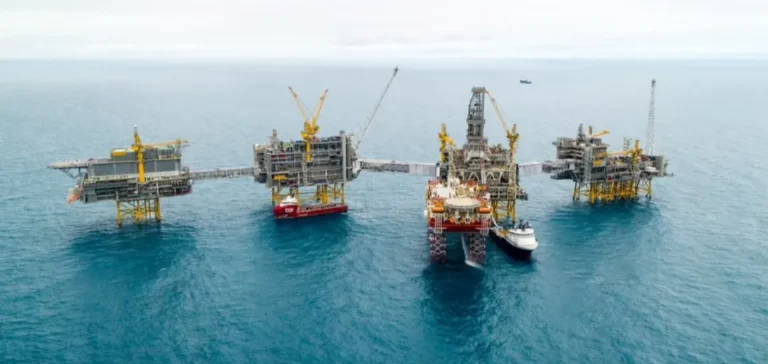Canadian producer Tenaz Energy has completed the acquisition of a private company holding interests in the Gateway to the Ems (GEMS) project, located on the maritime border between the Netherlands and Germany. The transaction, totalling $339mn, includes $323mn in cash, $17mn in Tenaz common shares, and contingent payments of up to $83mn depending on future exploration results.
An operation aligned with expansion strategy
The acquired assets include five offshore licences covering 1,811 km², three in the Netherlands and two in Germany. Tenaz’s working interests range from 22.5% to 45%. These assets currently generate a net production of approximately 3,200 barrels of oil equivalent per day (boe/d), almost entirely composed of Title Transfer Facility (TTF) natural gas. Output is expected to double to around 7,000 boe/d in 2026.
The N05-A field, producing since March 2025, is central to the development plan. The well, in which Tenaz holds a 33.3% interest, delivers a net output of 25 MMcf/d, making it the highest-producing well in the Netherlands. Two additional wells are scheduled for late 2025, while development of the N04-A and N04-C satellite fields is planned for 2027.
Secured cash flow through hedging and structured debt
By 2026, the newly acquired assets are expected to generate $160mn in operating cash flow and $95mn in free cash flow. To support this profile, Tenaz has implemented hedges covering 14,000 MMbtu/d from October 2025 to December 2027 at an average price of €30.75/MWh ($14.65/MMbtu), securing approximately €100mn ($163mn) in revenue during the period.
The acquisition was funded through existing cash reserves and a new tranche of senior unsecured notes, raising $178.9mn. These bonds supplement the company’s 2024 issuance, bringing the total principal due at maturity to $305mn. A new $115mn secured revolving credit facility was also established but remains undrawn.
Extensive exploration prospects over time
The portfolio includes two tested but undeveloped fields, four discovered contingent fields, and 14 exploration targets. Of these, three are expected to be drilled in 2026 and together hold an unrisked net resource potential of 131 Bcf. Their combined after-tax net present value (NPV10) is estimated at $306mn. The N05-A-Noord discovery, approved by project partners, will be the first to be drilled.
The remaining eleven prospects have been assessed on a volumetric basis only, totalling 1,114 Bcf of unrisked prospective resources. Tenaz structured the contingent payment to apply only in the event of major discoveries, at $28mn per qualifying field, or $14mn if the discovery proves to be an extension of the existing reservoir.
Productivity gains expected from 2026
The acquired assets are expected to reduce consolidated operating and administrative costs by approximately 23% in 2026. The transaction is accretive across key indicators, with an estimated 31% increase in production per share, 23% in proved and probable (2P) reserves, and 45% in operating cash flow.
An independent assessment by McDaniel attributes 13.7mn barrels of oil equivalent (boe) of proved reserves (1P) and 19.3mn boe of 2P reserves to the assets. The after-tax NPV10 of the 2P reserves stands at $590mn, with an expected economic production life of 14 years. The project is operated by ONE-Dyas B.V., the largest private oil and gas company in the Netherlands.






















